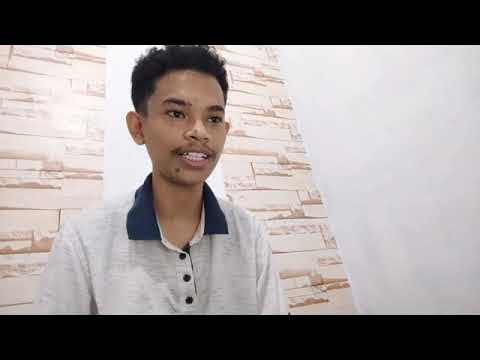TRAKLINDAS 1 - KOMUNIKASI TERAPEUTIK
Summary
TLDRIn this therapeutic communication session led by Dr. Dwita, the importance of effective communication in healthcare is highlighted, emphasizing its role in enhancing patient care and emotional support. The session outlines the objectives and phases of therapeutic communication, including self-realization, trust-building, and functional improvement. A case study of Bu Novi, a 40-year-old stroke patient, illustrates these principles in action, showcasing her challenges and the significant support from her family. The discussion emphasizes the importance of ongoing communication and collaboration between healthcare providers and patients to promote recovery and well-being.
Takeaways
- 😀 Therapeutic communication is a learned skill that helps doctors understand patient issues and provide health education.
- 😀 The primary goal of therapeutic communication is to enhance patients' self-realization and self-esteem, especially for those facing health challenges.
- 😀 Establishing interpersonal relationships based on trust is crucial in therapeutic communication.
- 😀 Therapeutic communication aims to satisfy patients' needs and achieve realistic goals in their healthcare.
- 😀 The process includes several phases: pre-interaction, orientation, working, and termination, each with specific objectives.
- 😀 The pre-interaction phase allows doctors to reflect on their strengths and weaknesses to facilitate effective communication.
- 😀 In the orientation phase, doctors assess how patients face their issues and establish communication boundaries.
- 😀 The working phase focuses on identifying stressors and helping patients develop constructive coping mechanisms.
- 😀 The termination phase involves planning for future treatment and maintaining established boundaries in the doctor-patient relationship.
- 😀 Case example: A 40-year-old woman, referred to as Ibu Novi, faces emotional and physical challenges post-stroke, emphasizing the importance of supportive family involvement.
Q & A
What is therapeutic communication?
-Therapeutic communication is a skill that can be trained in doctors to help identify patient problems, provide health education, plan treatment, and assist patients in coping with their health issues.
What are the primary goals of therapeutic communication?
-The goals include self-realization and enhancing the patient's self-esteem, developing interpersonal relationships based on trust, satisfying patient needs, and improving the patient's integrity.
What is the first phase of therapeutic communication?
-The first phase is the pre-interaction phase, where the doctor assesses their own strengths and weaknesses to facilitate effective communication.
What occurs during the orientation phase of therapeutic communication?
-In the orientation phase, the doctor learns about the patient's problems, establishes a communication agreement, and identifies the patient's anxiety levels and communication goals.
How does the working phase of therapeutic communication function?
-During the working phase, the doctor explores the patient's stressors and encourages self-awareness, aiming to help the patient develop constructive coping mechanisms.
What is the purpose of the termination phase in therapeutic communication?
-The termination phase involves mental preparation for future treatment planning, summarizing the relationship, and discussing the next steps in therapy while maintaining boundaries.
How does the doctor assess the patient's emotional state during the interaction?
-The doctor inquires about the patient's feelings regarding their current condition and daily activities, acknowledging the difficulty in adapting to their limitations post-stroke.
What specific challenges does Bu Novi face after her stroke?
-Bu Novi struggles with weakness on one side of her body, dependence on family for daily activities, emotional distress, and adapting to her new lifestyle.
What role does the family play in Bu Novi's recovery?
-The family supports Bu Novi by assisting with daily tasks, encouraging her, and participating in her rehabilitation, which is vital for her emotional and physical recovery.
What is emphasized regarding Bu Novi's treatment and rehabilitation progress?
-The doctor emphasizes that recovery takes time, progress may be slow, and it is essential to focus on small achievements while maintaining regular therapy and medication.
Outlines

このセクションは有料ユーザー限定です。 アクセスするには、アップグレードをお願いします。
今すぐアップグレードMindmap

このセクションは有料ユーザー限定です。 アクセスするには、アップグレードをお願いします。
今すぐアップグレードKeywords

このセクションは有料ユーザー限定です。 アクセスするには、アップグレードをお願いします。
今すぐアップグレードHighlights

このセクションは有料ユーザー限定です。 アクセスするには、アップグレードをお願いします。
今すぐアップグレードTranscripts

このセクションは有料ユーザー限定です。 アクセスするには、アップグレードをお願いします。
今すぐアップグレード関連動画をさらに表示
5.0 / 5 (0 votes)






